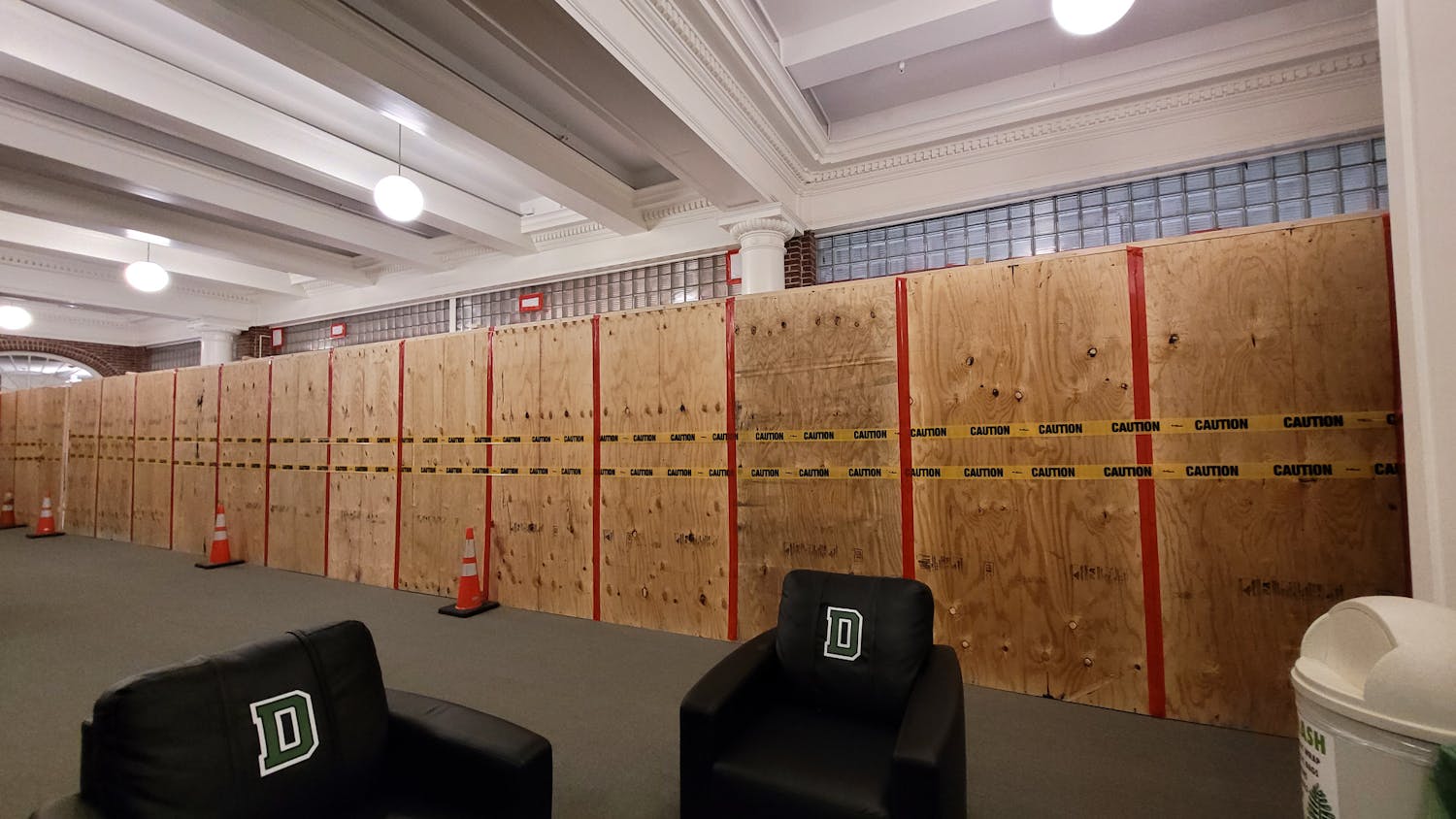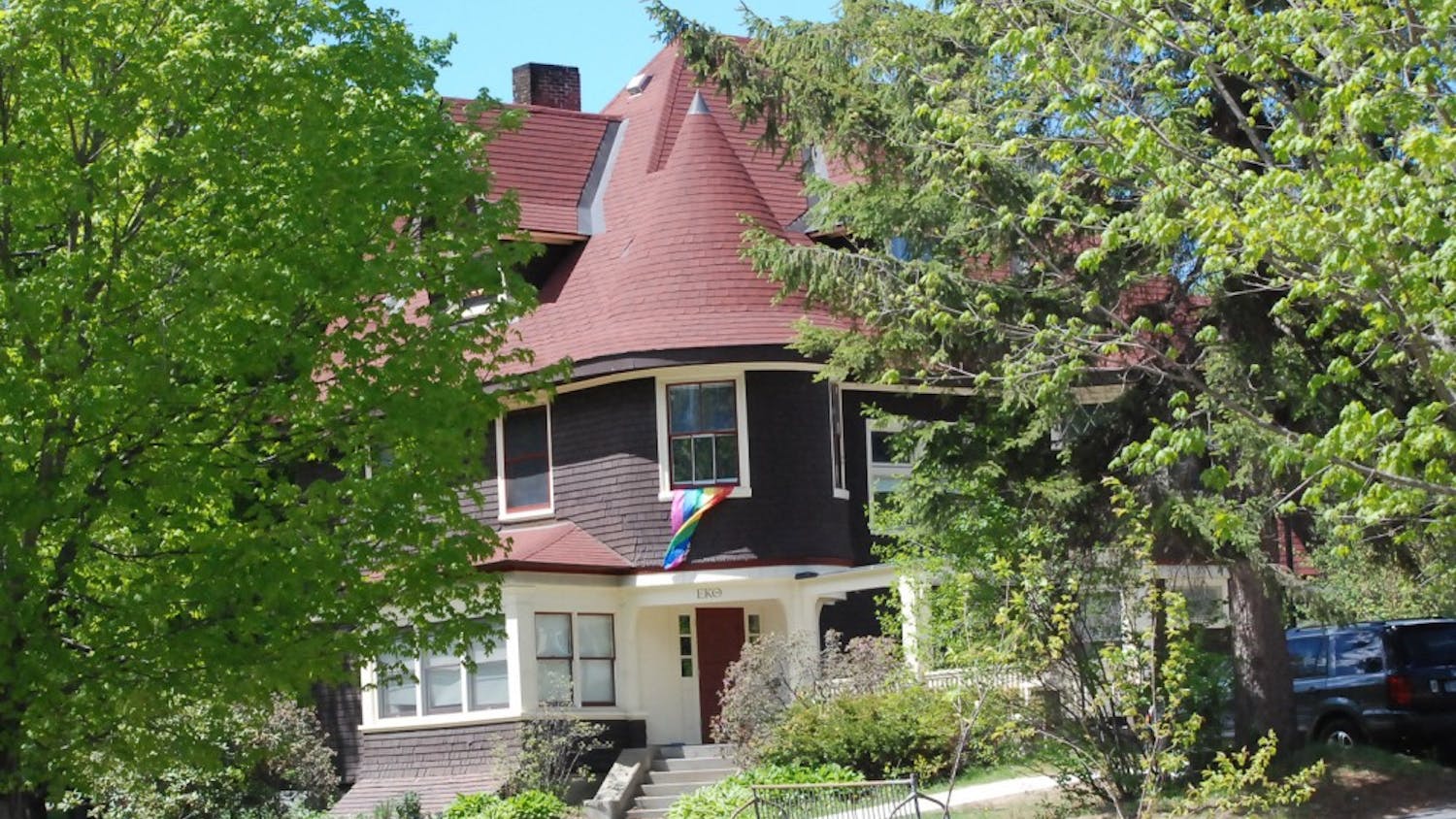The $70 million federal class action that the College faces has incited further action by Dartmouth community members. On Jan. 2, the advocacy group “Dartmouth Community Against Gender Harassment and Sexual Violence,” which includes both students and alumni members, delivered a list of specific actions to College President Phil Hanlon’s office.
The group says the actions must be taken in order to “address both individual incidents and the broader culture that permits sexual misconduct to recur.”
The list of demands was released through a letter the day before the College’s announcement of the Campus Culture and Climate Initiative, which aims to address some of the concerns centered around sexual assault outlined in the letter. The letter also follows an earlier statement of support for the plaintiffs in the pending Title IX lawsuit against the College. That first letter, which called upon the administration to acknowledge a “glaring breach of responsibility” and issue a public apology, was delivered Dec. 6 and signed by nearly 800 members of the greater Dartmouth community.
The two-page list of demands is divided into three categories: immediate, “time-bound” and long-term actions. These actions include changes in the style of communications around sexual misconduct on campus, the recruitment of ombudspersons trained in gender harassment and sexual assault cases, further allocation of resources to counseling services, additional education on topics such as gaslighting and power dynamics, training for faculty and administrators in leadership positions and further, more transparent community participation in the development of reforms.
Itzel Rojas, a graduate student in the experimental and molecular medicine program who helped write the list of demands, emphasized the grassroots nature of its development.
“We basically just formed a small writing group that actively created the document, edited it and then put it out for community feedback and took that in, just trying to get ... something that was really representative as well as accurate and ... as inclusive as possible,” Rojas said.
She added that the writing group included undergraduate students, graduate students and alumni spanning decades of classes.
“One of the really powerful things about this group is that we’re drawing from a really vast array of participants,” Rojas said.
Rebecca Finger, a fourth-year graduate student in the ecology, evolution, ecosystems and society program, joined the group after signing the first letter and said she provided feedback on initial drafts of the list of demands.
“I joined the group wanting to advocate more for graduate students, which I think is a group that doesn’t have a clear voice at Dartmouth,” Finger said.
Among the list of demands is further education on topics surrounding sexual misconduct.
Diana Whitney ’95 has taken a communications and management role within the advocacy group and helped edit the letter. Whitney said that while the group applauds the educational efforts of groups on campus, it wants to see a more unified approach.
“We wanted to acknowledge that there are some very good existing programs,” she said.
However, the College needs “a unified plan that stands across the whole campus,” she added.
Whitney also said that the group’s demand for mandatory sexual harassment and misconduct training for Dartmouth’s deans and department chairs is “crucial.” She noted that there is already mandatory training on a variety of sexual misconduct issues for undergraduate students.
The group is also demanding transparency and community oversight, including town hall meetings and an independent panel that would review quarterly progress reports submitted by the administration.
“It’s important for [the College] to initiate the kind of transparency that [the] community demands of [it],” Rojas said. “If people still have certain kinds of questions or would like to be more hands-on in the process, for example, that’s something that [the administration] should be really sensitive to.”
Additionally, the group demanded that Dartmouth immediately issue a statement acknowledging a declaratory judgment pending in the Federal District Court of New York involving an alleged assault on campus. In the case, Monica Morrison ’07 seeks a declaratory judgment — a judgment of a court which determines the rights of parties — regarding her rights to speak about the assault. The complaint details her desire to protest a demanded non-disclosure agreement and resolve threatened claims of slander against her alleged assailant, then a student at the Tuck School of Business.
Whitney described the lawsuit as a question of academic freedom. The group’s letter asserts that “the premise of this case is to silence a Dartmouth survivor by denying her right to speak or write about her experience.”
“[Morrison’s] alleged assaulter’s actions have been to use his power and wealth to silence her writing or speaking about her experience,” Whitney said. “This is really relevant to the core values of the College.”
Morrison did not reply to a request for comment.
The roll-out of C3I appears to aim to address some of the demands in the letter, including mandatory sexual misconduct education and independent oversight of policy making. The advocacy group said in a statement that though it is “heartened by the appointment of an independent external advisory committee,” it found some of the points in the initiative to be lacking in detail and context and that they fail to address “Dartmouth-specific toxicities.”
Finger pointed out that two of Hanlon’s emails to the community have come soon after the delivery of a letter endorsed by members of the Dartmouth community.
“Clearly, I think we’ve made our mark,” she said.
Jennifer Ditano, a graduate student in experimental and molecular medicine program, applauded the use of National Academies of Sciences, Engineering, and Medicine studies as a model but said she would like to see examples of actions the administration plans to take at Dartmouth.
Ditano added that she is worried the administration does not have “a concrete plan” about how it will address Dartmouth-specific issues.
“Taking a blanket approach won’t work here — the NASEM report is a good framework, but the pain and discrimination experienced here is colored in Dartmouth green,” Rojas wrote in an email statement.
Finger said she was disappointed to not see ombudsperson positions in the initiative, which she described as “standard practice” for top U.S. universities.
“The fact that Dartmouth does not have an ombudsman is pretty disgraceful when it comes to protecting students, faculty and staff,” she said.
Ditano said she was disappointed in what she said was a failure to acknowledge “survivors and victims from past decades up to the current.”
“As far as I can tell, nothing in their new initiative takes any responsibility on Dartmouth’s part for fostering the environment that we currently have,” she said. “I know that that’s been really hard for victims and survivors.”
Hanlon’s reply to the letter’s list of demands stated that he will “consider the ideas and requests that it includes over the days ahead.”
In response to both the list of demands and the December letter, Hanlon extended an invitation for the group’s leaders to meet with him, a proposal Whitney said the advocacy group intends to accept soon.
“What we are going to do is poll the whole group for questions for him and tell him what the biggest concerns are,” she said. “We really want to be representative of all the concerns. And as a Dartmouth survivor myself, I’m looking forward to talking with the president about my own experience.”
Other future plans include working with student groups on campus and holding a rally for “A Dartmouth Free of Sexual Violence.” Whitney said the advocacy group may consider working with groups such as the Sexual Assault Peer Alliance and the Movement Against Violence.
A representative for SAPA declined to comment and MAV did not reply to a request for comment.
Whitney said she has felt more engaged with the Dartmouth community now than at any time since graduation.
“Once I graduated, I didn’t really feel a lot of connection,” she said. “This has been very interesting for me, personally ... to feel compelled to engage.”

Kyle ('22) is the former editor-in-chief of The Dartmouth, Inc. and an opinion writer for The Dartmouth from St. Petersburg, Florida. He is studying history, economics and public policy at the College. In his free time, he also enjoys climbing, Legend of Zelda: Breath of the Wild and a good book.
As former editor-in-chief, Kyle's views do not represent those of The Dartmouth.



